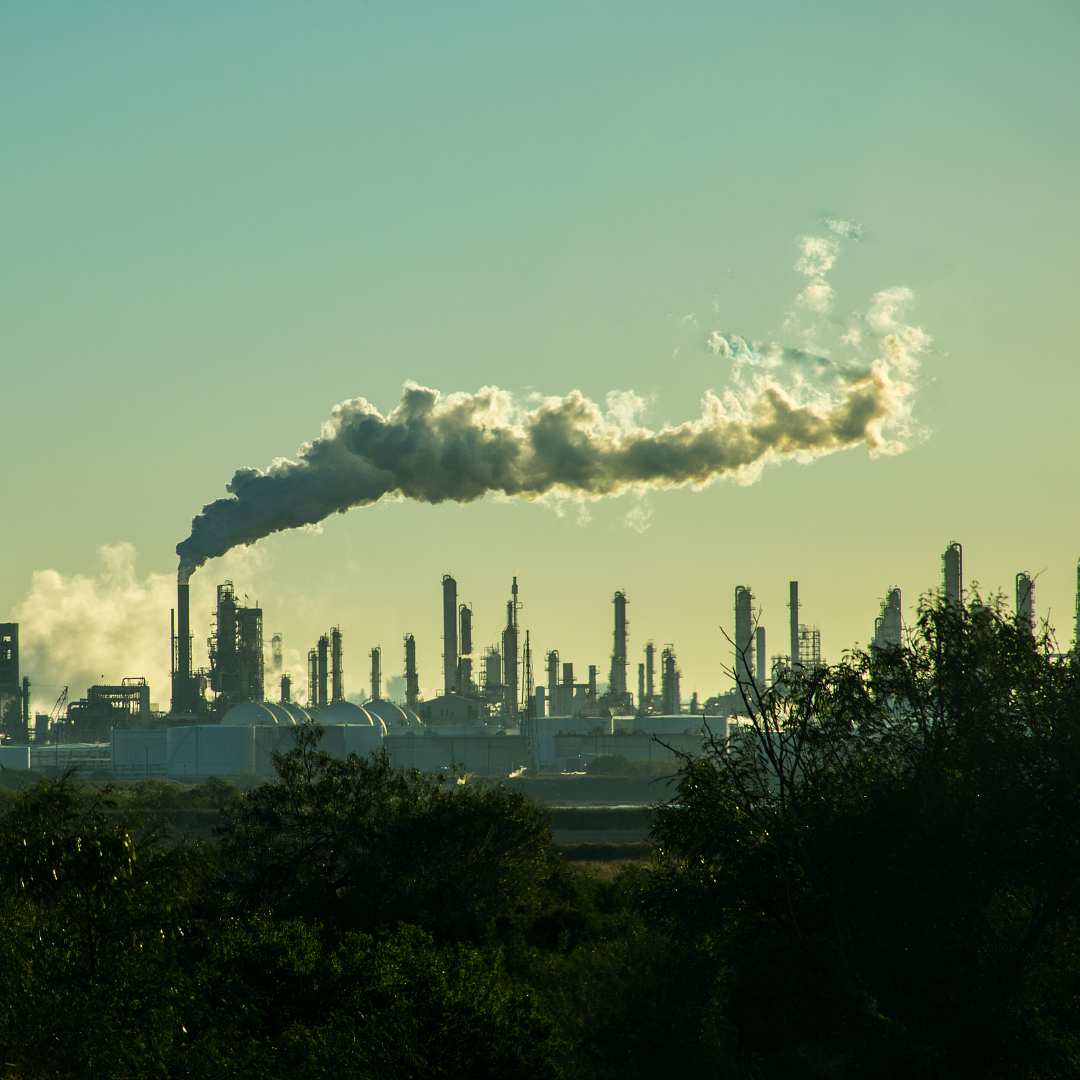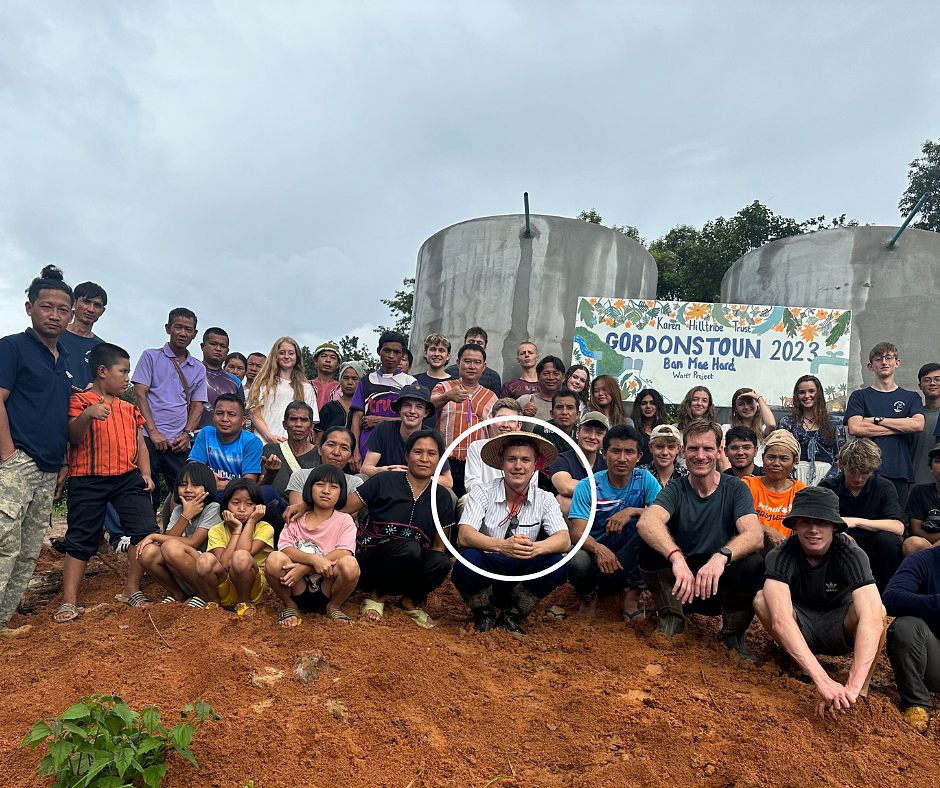Climate Change Champion Receives Recognition
Commendation from The Royal Geographical Society
Gordonstoun student Johannes T. has earned well-deserved recognition for his essay on climate change, awarded Highly Commended by The Royal Geographical Society in their 2023 School Essay Competition. In his essay (shared below), Johannes delves into challenges posed by climate change, and what we can do to make a difference.

What risks are associated with climate change and what should we be doing about it?
Climate change is a term used to describe a variation in the average global temperature and the weather patterns as a result of human activity, mainly caused by the large emissions of greenhouse gases such as carbon dioxide that are produced when fossil fuels are burnt. Greenhouse gases can trap heat from the sun by adsorbing the infrared red radiation emitted. By reflecting the radiation back to the earth’s surface or keeping hold of it within the atmosphere, our planet’s global temperature will increase. The risks posed by anthropogenic climate change will have dramatic consequences that can be felt across the globe, which is why the innovation of new technologies and mitigation strategies as well as the worldwide commitment by humans to actively reduce their carbon footprint will be essential to condemn the impacts of climate change.
One risk that is associated with climate change is the disruption of weather patterns. The large production of greenhouse gases since pre-industrial times has led to a warmer atmosphere (1.1°C) which holds 7% more moisture for every 1°C increase. This has caused heavy rainfalls and floods in some parts of the world, whereas other regions have experienced droughts as a result. Research has shown that the summer heat in Europe in 2022 alone killed over 60,000 people. With climate change projected to warm up our planet 2.6°C by 2100 (Financial Times, 2022), these natural disasters will not only become more frequent but also more severe.

To adapt to the rising sea levels and higher risk of extreme flooding in coastal areas, cities and settlements have to develop innovative designs that will decrease the resident’s vulnerability to floods. Rotterdam may be seen as a great example as it uses low-lying public places such as playgrounds or car parks as flood zones during storm surges. This takes off the pressure on the water drainage systems during the surge and hence reduces potential flooding of residencies. However, Ashley Dawson questions in Extreme Cities “Are the solutions pioneered by Dutch cities to cope with rising seas viable in other contexts?” and “How sustainable are Dutch cities such as Rotterdam ?”(142) as its short coastline and economic prosperity allows Holland to use unique technological innovations that would not be sustainable in most other countries. Therefore, simply copying mitigation strategies from other countries could have severe consequences for a country’s economy and people. Nonetheless the country can be seen as a role model for others in terms of their efforts in creating new ways to adapt to the fast changing coastal landscapes and weather patterns.
The dryer and warmer than usual conditions have also caused deep concerns within the EU regarding crop yield and food security. Many European farmers have struggled recently with the lack of precipitation along with the hot climate, e.g. in 2022/2023 the droughts led to a 19.3% decrease in EU maize production compared to the 5-year average (EU crop-yield reduction).

One mitigation strategy that may be put in place is the reduction of restrictions on GMO to help farmers adapt to the changing climate (Financial Times, June 2023). The use of gene editing technology could make crops more resistant to droughts or floods. In addition, the proposal ‘would also reduce the use of pesticides, fertilisers and other chemicals’ according to EU officials, benefitting nearby ecosystems since fertilisers would be less likely to run off into bodies of water, thus reducing the probability of eutrophication. Hence it could be seen as an important change in EU policy, needed to adjust to the changing climate.
Another threat resulting from climate change is the political and civil unrest caused by droughts and desertification, especially in the Sahel region. The World Food programme has raised the concern of food scarcity in the area as people are increasingly forced to leave their home due to violence, civil unrest and droughts. As a result, inter and intra regional migration flows have gone up significantly within West Africa putting more pressure on neighbouring communities that face similar challenges of violence and inconsistent precipitation (WFB, 7th July 2023). International organisations and governments will need to mitigate the food crisis within the Sahel region by giving aid to the people suffering the most consequently reducing the likelihood of violent uprisings. To combat the prolonged droughts and desertification, simple methods such as the zaï technology, where pits are dug in the rainy season and used to create fertile compost, as well as supporting initiatives such as the FMNR, which aims to restore plant cover may be helpful (reliefweb, 18th June 2023). However, despite their ability to be carried out on a large scale, such methods would not be enough to combat the effects that climate change has on the Sahel region, especially in the long term. Therefore, the regions will remain dependent on international aid until new ways are found to produce climate resilient and sustainable crops that are safe to consume.
The climate change crisis causes a number of global issues and its effects will be more and more devastating until we actively work to achieve the global target NetZero by 2050, whilst finding technological innovations, resiliency plans and simple strategies to mitigate the risks ranging from food insecurity to flooding. GMO crops, FMNR or the zaï technology may provide helpful innovations and methods to mitigate climate change to some extent. However, the US Department of Homeland Security’s national competition to encourage companies to work on scientific and technological innovations that could shape our views on clean energy could be the most effective strategy to quickly find solutions to mitigate the threats of the climate change crisis and reduce its impacts on the environment in the short and long term (US launches competition 2023). Carrying out such initiatives on a global scale, e.g. by the UN, could help humanity find the most efficient mitigation solutions by working and communicating with companies and nations around the world rather than in restricted communities. Resisting the current global trend of nationalism, by working alongside other international companies and governments would be essential if we were to reduce the global impacts that climate change related risks have around the world.
By Student Johannes T.

Johannes (circled) on a Gordonstoun International Service Project to Thailand.
At Gordonstoun, values like service and internationalism are a central part of life, helping to shape our students into tommorows changemakers. To learn more about how our values influence every aspect of life at Gordonstoun, get in touch, or join us for a Virtual Taste of Gordonstoun Webinar.